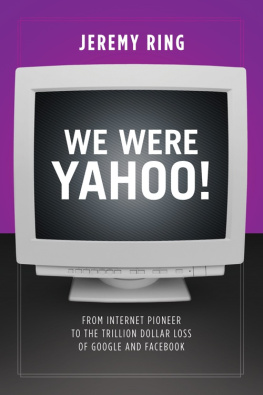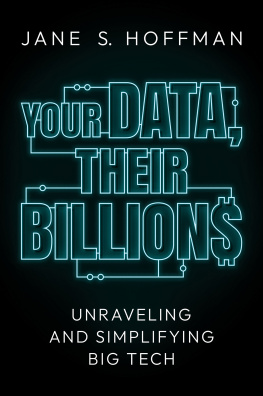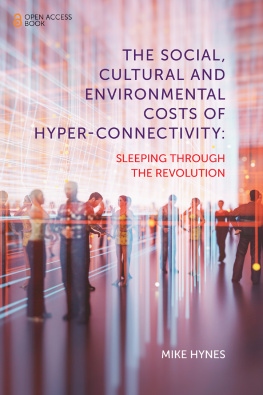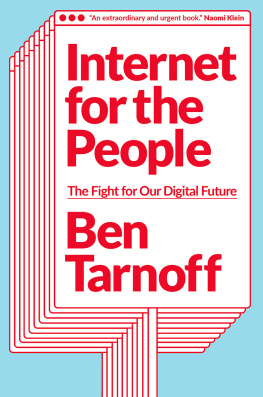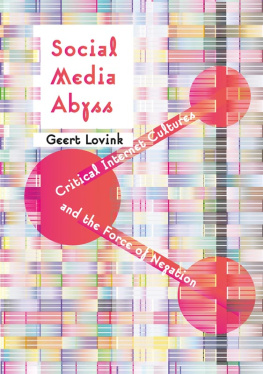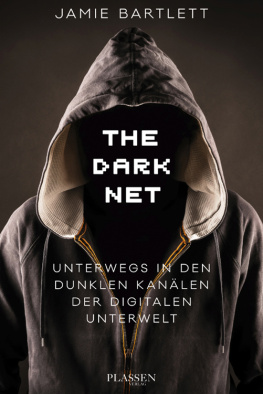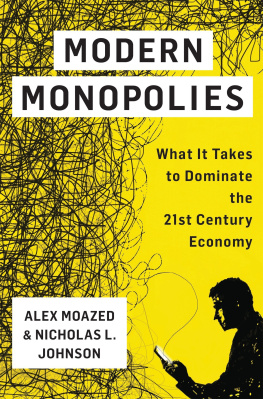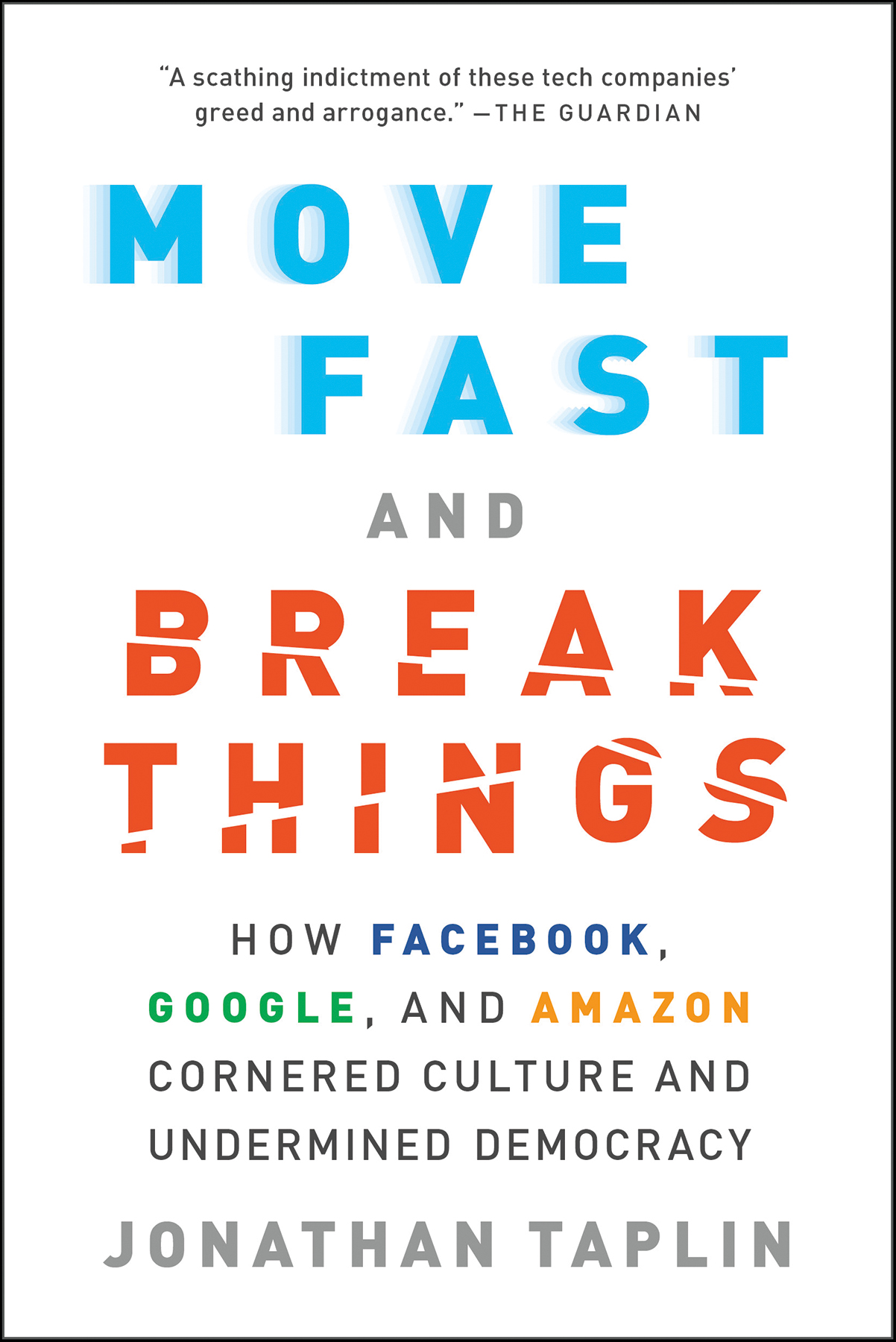I thought I was going to write the story of a culture war. On one side were a few libertarian Internet billionairesthe people who brought you Google, Amazon, and Facebookand on the other side were the musicians, journalists, photographers, authors, and filmmakers who were trying to figure out how to continue to make a living in the digital age. I have spent much of my life producing music and movies for artists such as Bob Dylan and The Band, George Harrison, and Martin Scorsese, to name a few, and the future of the media in which I workednot to mention the role of the artist in our societyis important to me. I was lucky enough to start out at a time when an artist could make a decent living by making music or a movie, and as a partner in this work, I succeeded, too. But those days are over. Since 1995the last time I produced a movie (To Die For)the digital distribution of most popular forms of art has reinforced the popularity of a small group of artists and cast almost all others into shadow. To be a young musician, filmmaker, or journalist today is to seriously contemplate the prospect of entering a profession that the digital age has eroded beyond recognition.
The deeper you delve into the reasons artists are struggling in the digital age, the more you see that Internet monopolies are at the heart of the problem and that it is no longer a problem just for artists. The Web has become critical to all of our lives as well as the world economy, and yet the decisions on how it is designed have never been voted upon by anyone. Those decisions were made by engineers and executives at Google, Facebook, and Amazon (plus a few others) and imposed upon the public with no regulatory scrutiny. The result is what President Obama calls a Wild West world without privacy or security that leaves every citizen vulnerable to criminal, corporate, and government intrusion. As Obama wrote in The Economist, a capitalism shaped by the few and unaccountable to the many is a threat to all.
The Internet is changing our democracy, too: in Twitter, Donald Trump found the perfect vehicle for his narcissistic personality, allowing him to strike out at all his perceived tormentors. And Facebook (the primary news source for 44 percent of Americans) was equally responsible for the Trump victory, according to Ed Wasserman, the dean of the University of California, Berkeley, Graduate School of Journalism: Trump was able to get his message out [on Facebook] in a way that was vastly influential without undergoing the usual kinds of quality checks that we associate with reaching the mass public. Facebook was flooded with fake news stories, and BuzzFeed reported that in the final three months of the US presidential campaign, the top-performing fake election news stories on Facebook generated more engagement than the top stories from major news outlets such as the New York Times, Washington Post, Huffington Post, NBC News, and others. As Ian Bremmer, president of the Eurasia Group told the New York Times, If it wasnt for social media, I dont see Trump winning. But the libertarians who control the major Internet firms do not really believe in democracy. The men who lead these monopolies believe in an oligarchy in which only the brightest and richest get to determine our future. Peter Thiel, the first outside investor in Facebook and cofounder of PayPal, thinks the major problem of American society is its unthinking demos: the democratic public that constrains capitalism. Thiel told Wall Street Journal columnist Holman W. Jenkins that only 2 percent of the populacethe scientists, entrepreneurs, and venture capitalistsunderstand what is going on and the other 98 percent dont know anything.
What I mistook as only a culture war is an economic war. It is likely only a preview of American capitalism in the digital age. The Economist, in a special issue on American monopoly capitalism entitled Winners Take All, editorialized that perhaps firms are abusing monopoly positions, or using lobbying to stifle competition. The game may indeed be rigged. They went on to suggest that what was needed was a major reform effort that would involve more active, albeit cruder, antitrust actions. It would start a more serious conversation about whether it makes sense to have most of the countrys data in the hands of a few very large firms. It would revisit the entire issue of corporate lobbying, which has become a key mechanism by which incumbent firms protect themselves. Monopoly, control of our data, and corporate lobbying are at the heart of this story of the battle between creative artists and the Internet giants, but we need to understand that every one of us will stand in the shoes of the artist before long. Musicians and authors were at the barricades first because their industries were the first to be digitized. But as the venture capitalist Marc Andreessen has said, Software is eating the world, and soon the technologists will be coming for your job, too, just as they will continue to come for more of your personal data.
The rise of the digital giants is directly connected to the fall of the creative industries in our country. I would put the date of the real rise of digital monopolies at August of 2004, when Google raised $1.67 billion in its initial public offering. In December of 2004, Googles share of the search-engine market was only 35 percent. Yahoos was 32 percent, and MSN was at 16 percent. Today, Googles market share is 88 percent in the United States and higher in the rest of the world. In 2004 Amazon had net sales revenue of $6.9 billion. In 2015 its net sales revenue was $107 billion, and it now controls 65 percent of all online new book sales, whether print or digital. In those eleven years, a massive reallocation of revenueperhaps $50 billion per yearhas taken place, in which economic value has moved from the creators of content to the owners of monopoly platforms.




